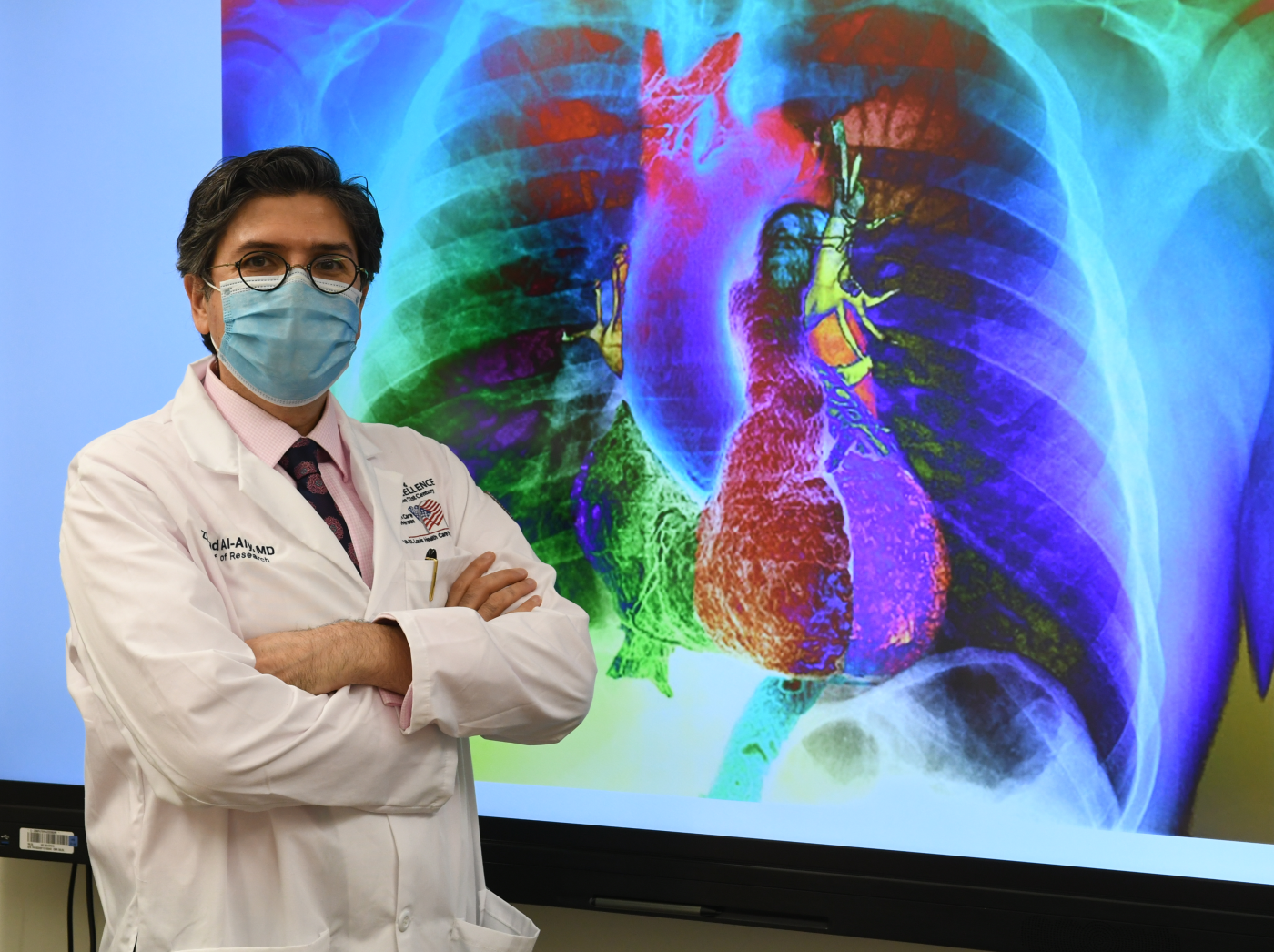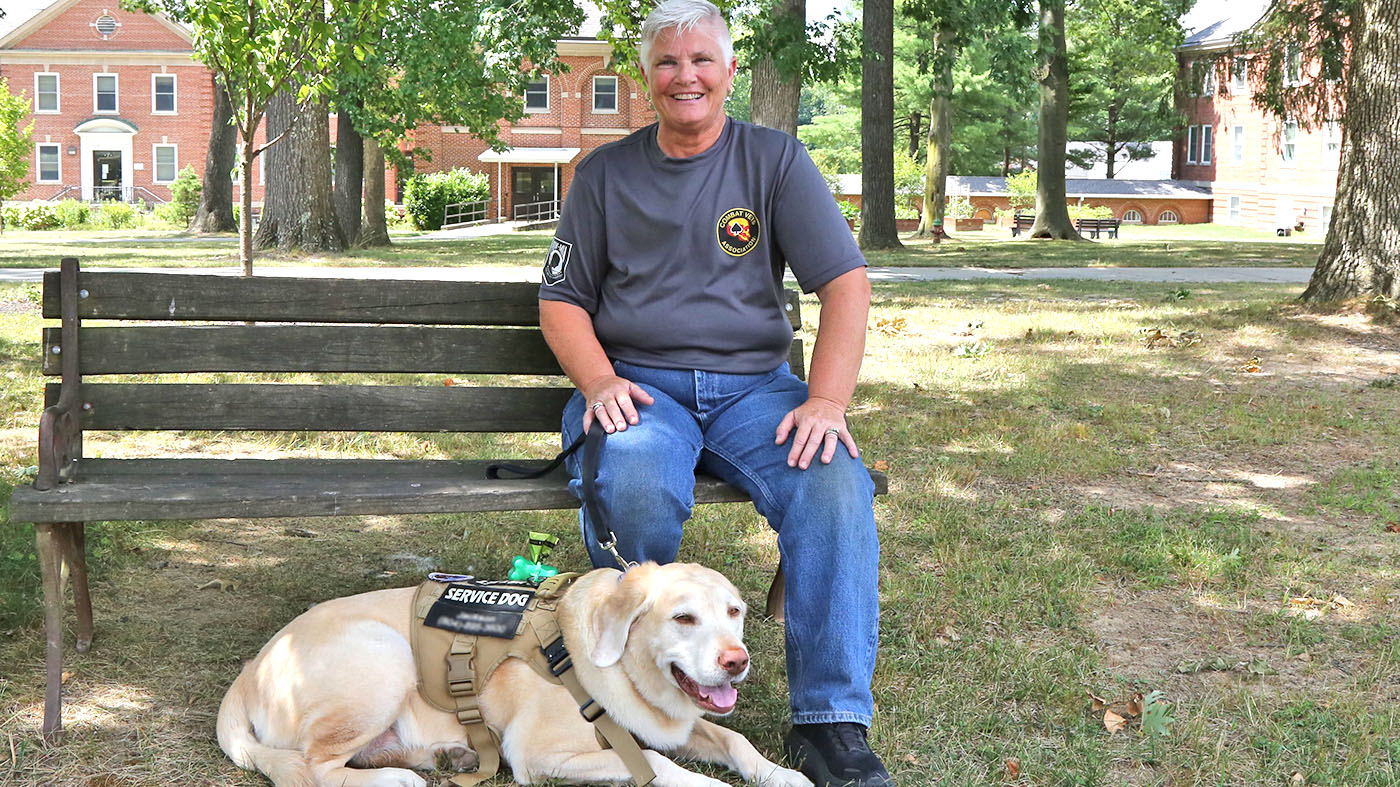The most menacing fallout from COVID-19 often shows itself only after the initial “acute” infection passes. A team of VA researchers has been shining a light on COVID’s dangerous and enduring consequences – most recently, in research spotlighting heart and blood vessel conditions and mental health disorders that arise weeks or months after the initial COVID bout. The researchers, with the VA St. Louis Health Care System, published their findings on COVID’s post-acute effects on the heart and blood vessels in the Feb. 7, 2022, issue of Nature Medicine, and findings on the chronic effects on mental health in the Feb. 16, 2022, issue of the British Medical Journal.
The research team found that, even in people not needing hospitalization while infected with COVID-19, serious health issues could persist, or pop up, in the weeks and months after the first, acute stage. The reasons for the increased mental health risks after COVID are not completely clear, the researchers say. Biologic changes may occur in the body that affect the brain, and nonbiologic changes such as social isolation and trauma may also be at play.
The researchers also identified cardiovascular consequences including blood clots, strokes and heart failure, and mental health issues such as depression, anxiety, sleep disorders and substance use disorders.
COVID-19: far from benign
For many people, COVID-19 infection comes with only mild or moderate symptoms, such as an irksome cough and shortness of breath that last for a few days. But this first phase can be the “tip of the iceberg,” according to the Nature Medicine and BMJ studies’ principal investigator, Dr. Ziyad Al-Aly. “Those who go on to experience serious chronic consequences – effects that commonly last a lifetime – are the ones who will bear the scars of this pandemic.”
Al-Aly heads up both the Clinical Epidemiology Center and the Research and Development Service at the VA St. Louis Health Care System. He is also a nephrologist – a doctor who specializes in kidney disease – and a clinical epidemiologist with expertise in big data. His group analyzes huge data sets too complex for conventional computer software.
In his research, Al-Aly specializes in COVID’s chronic effects, which are known technically as “post-acute sequelae of SARS-CoV-2” and informally as “long COVID” or “long-haul COVID.” Studies conducted by Al-Aly and others have shown that long COVID can affect nearly every organ system. “People return to their doctor with fatigue, brain fog, amnesia, strokes, new-onset diabetes, kidney disease, heart disease, and more,” the physician-researcher says.
Profound and wide-reaching ramifications
From the wide range of chronic consequences of COVID, Al-Aly and his team decided to zero in on the cardiovascular and mental health aftermath because of these health issues’ “profound and wide-reaching ramifications for individual and public health,” says coauthor Dr. Yan Xie, a clinical epidemiologist with the VA St. Louis Clinical Epidemiology Center.
Looking at a study period of about a year, the group compared the cardiovascular and mental health risks for those who had COVID-19 and survived the first 30 days of infection with the same health outcomes among those who were not infected.
The research team’s in-depth analysis of cardiovascular complications following COVID-19 infection found increased risks for serious conditions such as heart attack, heart failure, blood clots and stroke. Overall, those with COVID were 55 percent more likely than the non-COVID group to suffer a major adverse cardiovascular event such as heart attack, stroke or death.
More Information
Click here to read the full story.
Click here to read about VA research during the COVID-19 pandemic.
Click here to learn more about VA research.
Topics in this story
More Stories
Combat Veteran faces the traumatic events of her PTSD during prolonged exposure therapy and looks forward to the days to come.
Bob Jesse Award celebrates the achievements of a VA employee and a team or department that exemplifies innovative practices within VA.
The Medical Foster Home program offers Veterans an alternative to nursing homes.







I’ll forward your question-comment to the author of this COVID research and see what he says about Veterans being vaccinated.
The article does not mention whether the individuals experiencing these issues were vaccinated or not. Could it be that the vaccine might be creating these issues, especially after getting Covid anyway? I presume most veterans are vaccinated, but I could be wrong.
These veterans were all enrolled before January 15, 2021 and more than 99% were not vaccinated.